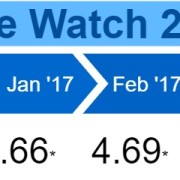Black April: The Twitch Partner Reckoning
April 2016 may have seemed like just another month on Twitch.tv, but the volume of Twitch partners struggling with the complexity of taxes on social media was louder than ever.
People are continuing to take their hobby of streaming video games and turning it into careers, many with great success. These successful careers are creating lives for many people that they haven’t experienced before, getting paid to do what they love. With this new found success and income came an increase in payments to the outstretched hand of the tax man, Uncle Sam. While for a majority of the people who have experienced this before, their thought may be: “Seems standard.” In this case, many who were impacted the most were not prepared for the impending tax bill and did not know what steps to take to soften the blow. Successful streamers in the past got away with standard tax preparations in their first year of business, but they did not anticipate the increase in the complexity of their taxes with the increase in their annual pay. This has always been a problem for those making a significant amount of money, a relatively new situation in the Twitch world.
Obviously, some may allude to the fact that tax preparation should be common knowledge. It’s hard to disagree with that statement, but many of these young entrepreneurs look at themselves as employees taking home a paycheck instead of as small business owners looking to manage their tax burden. Streamers who grew their respective gaming communities were thrust into a new position that some were not prepared for from a financial standpoint.
What is the glaring issue here? The main issue was the lack of knowledge on the streamer front as to how to handle taxes proactively. This was a first time experience for many, and for someone working under the 1099 independent contractor banner, it can be easily forgotten that taxes are a looming liability. The even more forgotten concern is the full 15.3% payroll tax that becomes the liability of the streamer versus only paying half as a W2 employee. If taxes are not adequately addressed in the current tax year, it can create years of future problems, additional payments, and more time spent dealing with the IRS.
The silver lining to this story is the viability of the interactive media market as a career for professional players, streamers, or content creators. This growing market is a breeding ground for sponsors to find new users of their products and create lifetime customers. Each micro-community on Twitch represents a unique opportunity for streamers to leverage their audience.
With taxes continuing to be an annual problem for streamers, there are solutions. Individual firms, consultants, and even pro-bono counseling groups are being formed for the sole purpose to better educate, prepare, and potentially offer professional services to those in need. One example is the Player Resource Center being developed by esports lawyer Bryce Blum and former professional gamer Stephen “Snoopeh” Ellis to fill this exact void. The growing interactive media environment needs professional infrastructure to help it continue to thrive into the future.
Outside of being able to generate a living via streaming, the biggest financial problem that streamers face is proper consideration towards taxes at the end of the year. With many firms looking to help and resources becoming available to those in need, there is hope that these entrepreneurs will continue to increase their efficiency and make the most of their success for years to come.

Joe Occhipinti
Joe@warrenstreetwealth.com
714.823.3328








